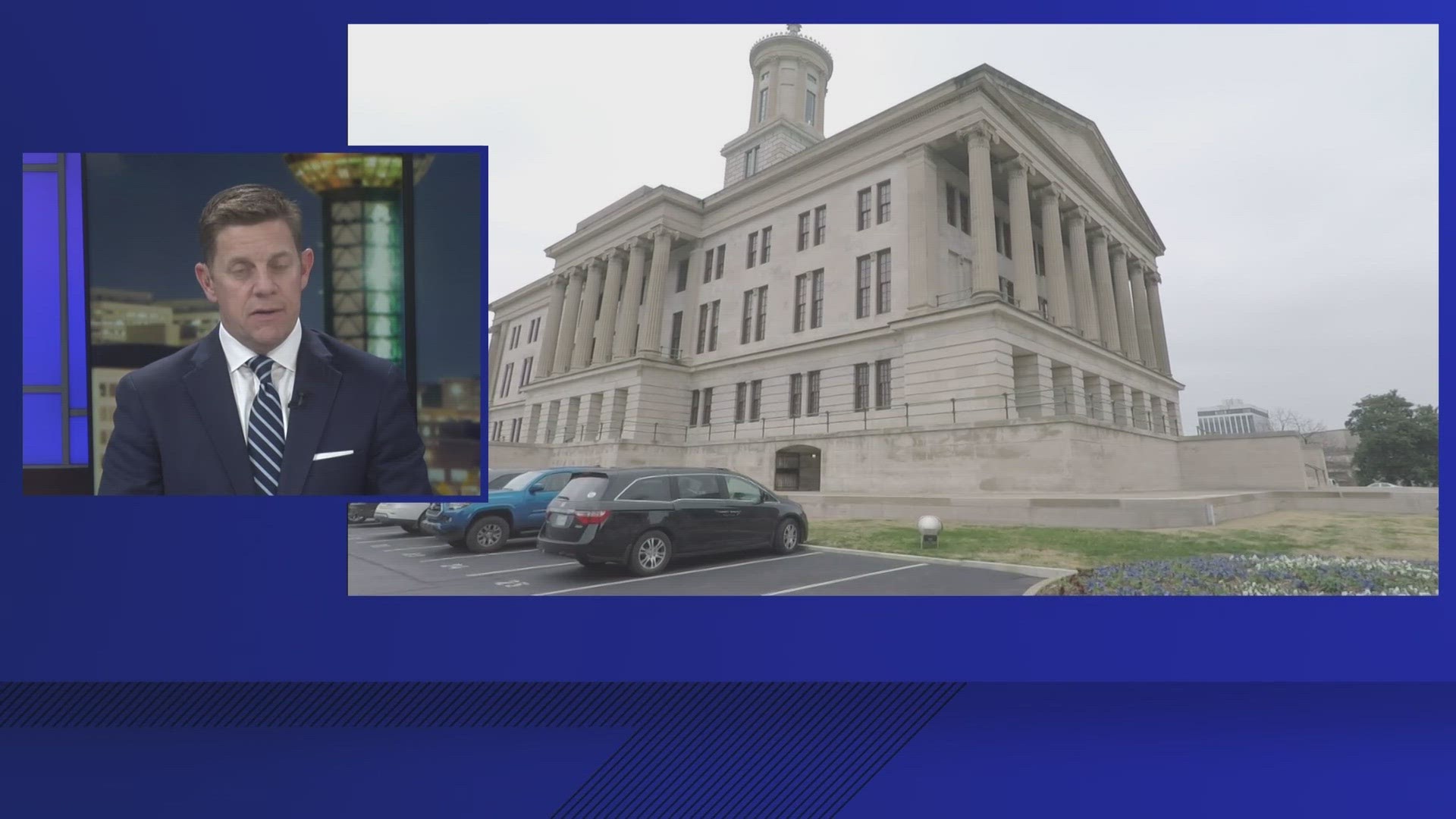NASHVILLE, Tenn. — A bill that would remove and replace anti-discrimination language that specifically helps protect LGBTQ+ students, and most other minority students, from the state's code of ethics for educators passed a House subcommittee on March 19.
HB 1634 was introduced by Rep. Gino Bulso (R - Brentwood). Under current law, the teacher code of ethics requires educators to help each student reach their "potential as a worthy and effective member of society," and "stimulate the spirit of inquiry, the acquisition of knowledge and understanding and the thoughtful formulation worthy goals."
Current law specifically prevents educators from unfairly excluding any student from participating in any program or otherwise treating them differently based on their "family, social, or cultural background; or sexual orientation," among other characteristics.
Bulso's bill would originally have deleted that language and instead said students could not be treated differently based on "family background; or the student's membership in a protected class under federal or state law."
It was then amended to have the bill delete all specific protections in that particular section of the code of ethics. Instead, the bill would have the code of ethics say, "Not on any basis exclude the student from participation in any program, deny benefits to the student; or grant any advantage to the student."
Originally, the code of ethics protected "race; color; creed; disability; sex; national origin; marital status; political or religious beliefs; family, social, or cultural background; or sexual orientation."
Current state law also defines "gender identity" as having the same meaning provided in the DSM-5. That manual for psychologists and psychiatrists defines it as "a category of social identity that refers to an individual’s identification as male, female or, occasionally, some category other than male or female."
The bill would remove the definition of "gender identity" from the state's laws on family life curricula.
"The bill simply clarifies that, as a matter of ethics, a teacher should not any student unfairly, on any basis. And so the bill simply takes out the specific categories," said Bulso during a House K-12 Subcommittee meeting.
A person testified against the bill, and some members of the audience held up Pride flags while they spoke. They said they're a transgender educator with eight years of volunteer experience and three years of professional experience working with students who have disabilities and psychiatric diagnoses.
"As a trans person employed by the public school system, this bill concerns me. I am horrified by the thought that, should this pass, teachers would be able to legally discriminate against students. as public employees, it is our job to support all students, not just those that we agree with," they said.
They also warned removing the term "gender identity" from state law would go against recommendations from national experts. They also warned the bill could harm transgender people across the state, specifically mentioning the death of a nonbinary Oklahoma teen who died a day after being beaten at a school.
"There have been many instances of similar laws being enforced around the nation. We see these consequences not in political protest, but in obituaries," they said.
They also said the bill would not protect all students as much as remove some protections for specific students.
Bulso referred to the speaker as "miss" in his response to the statement, after the speaker said they use "they/them" pronouns. He also urged the subcommittee to approve it as amended.
"You've taken out a few words, but this bill does a lot and you know it does a lot," said Rep. Sam McKenzie (D - Knoxville). "This bill, do you feel this bill is unconstitutional?"
Bulso said he did want to use the word "feel," and said his position was that the bill was "entirely constitutional," referring to the Tennessee Constitution.
"I used the word feel intentionally. You keep referring to the Tennessee Constitution. We have another one, and that word, 'united,' means a lot to me and it should to all of us," McKenzie said. "We are a state and we have a constitution, but we have a higher one ... And I keep using the word 'feel' because we're been inundated with bills like this, so it must be something you're feeling."
It is expected to be discussed in the House Education Administration Committee on March 27, and it passed on the Senate Education Committee before heading towards a full Senate vote on March 25.

